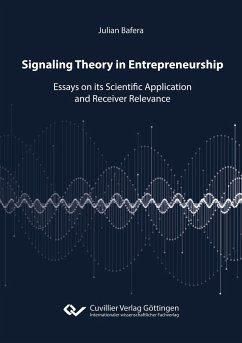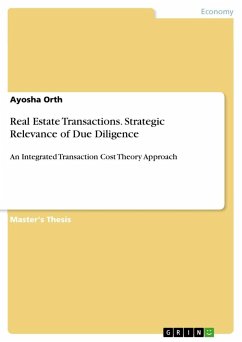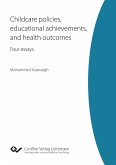This dissertation focuses on the application of signaling theory in the entrepreneurship context. Since the original publication by Michael Spence in 1973, signaling theory has been a relevant solution to mitigate information asymmetries in different contexts, such as economics, management, or entrepreneurship. Especially in the entrepreneurship context, information asymmetries are a central concern, as the survival of entrepreneurs and new ventures depends on their abilities to enter exchange relationships with essential stakeholders, such as investors, future employees, and customers. However, new ventures are particularly uncertain because they lack track records, collateral, and legitimacy. Sending credible signals of their quality is a potential solution to mitigating information asymmetries between new ventures and their stakeholders. This work demonstrates how signaling theory is applied in entrepreneurship research and how the field can develop in the future. Furthermore, this dissertation sheds light on the receiver side of signaling and explains how receiver relevance influences the effectiveness of signals.
Hinweis: Dieser Artikel kann nur an eine deutsche Lieferadresse ausgeliefert werden.
Hinweis: Dieser Artikel kann nur an eine deutsche Lieferadresse ausgeliefert werden.








